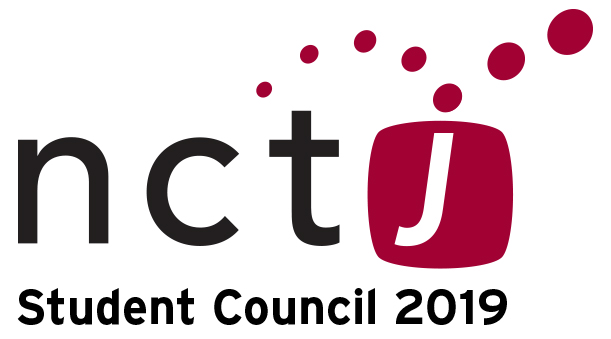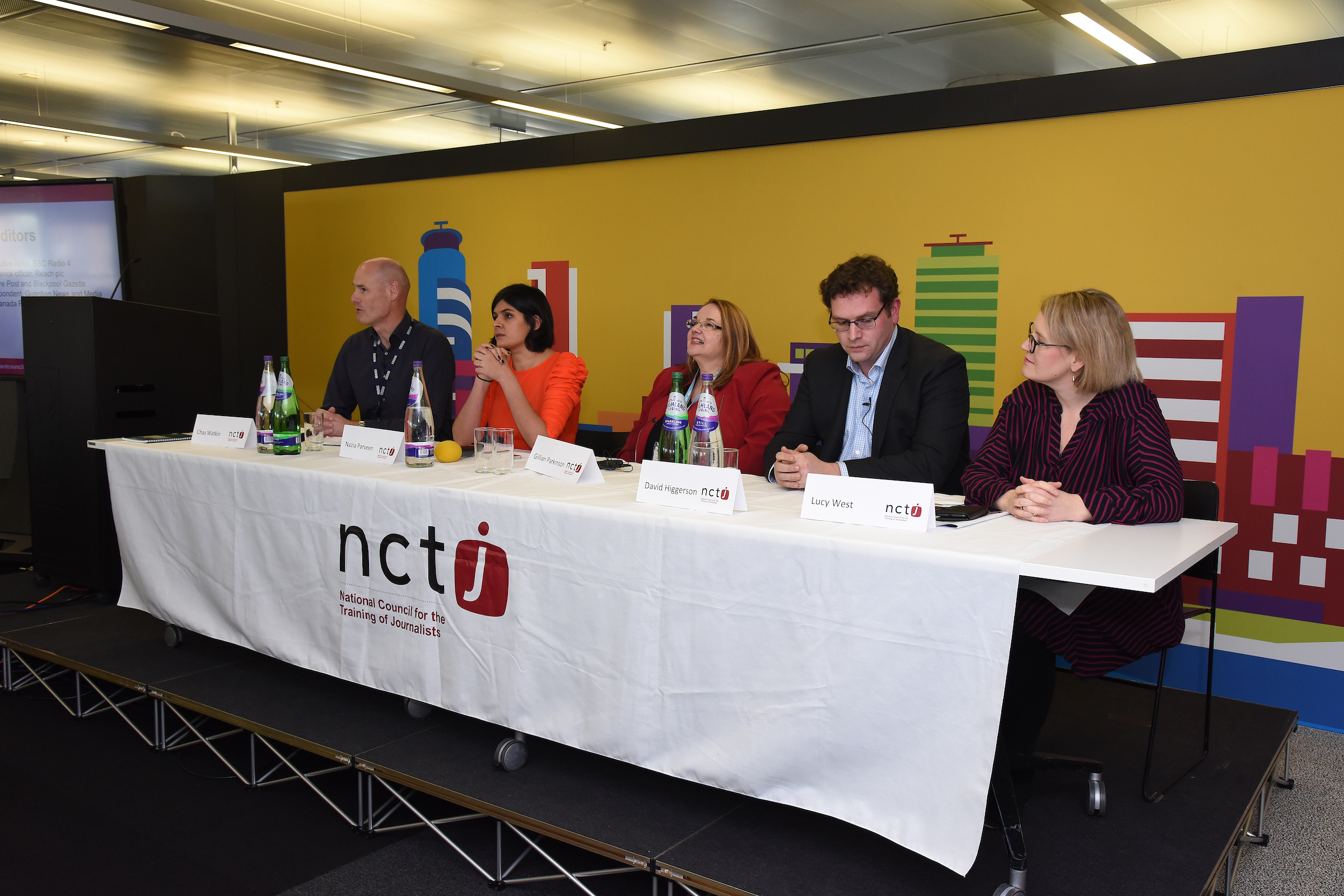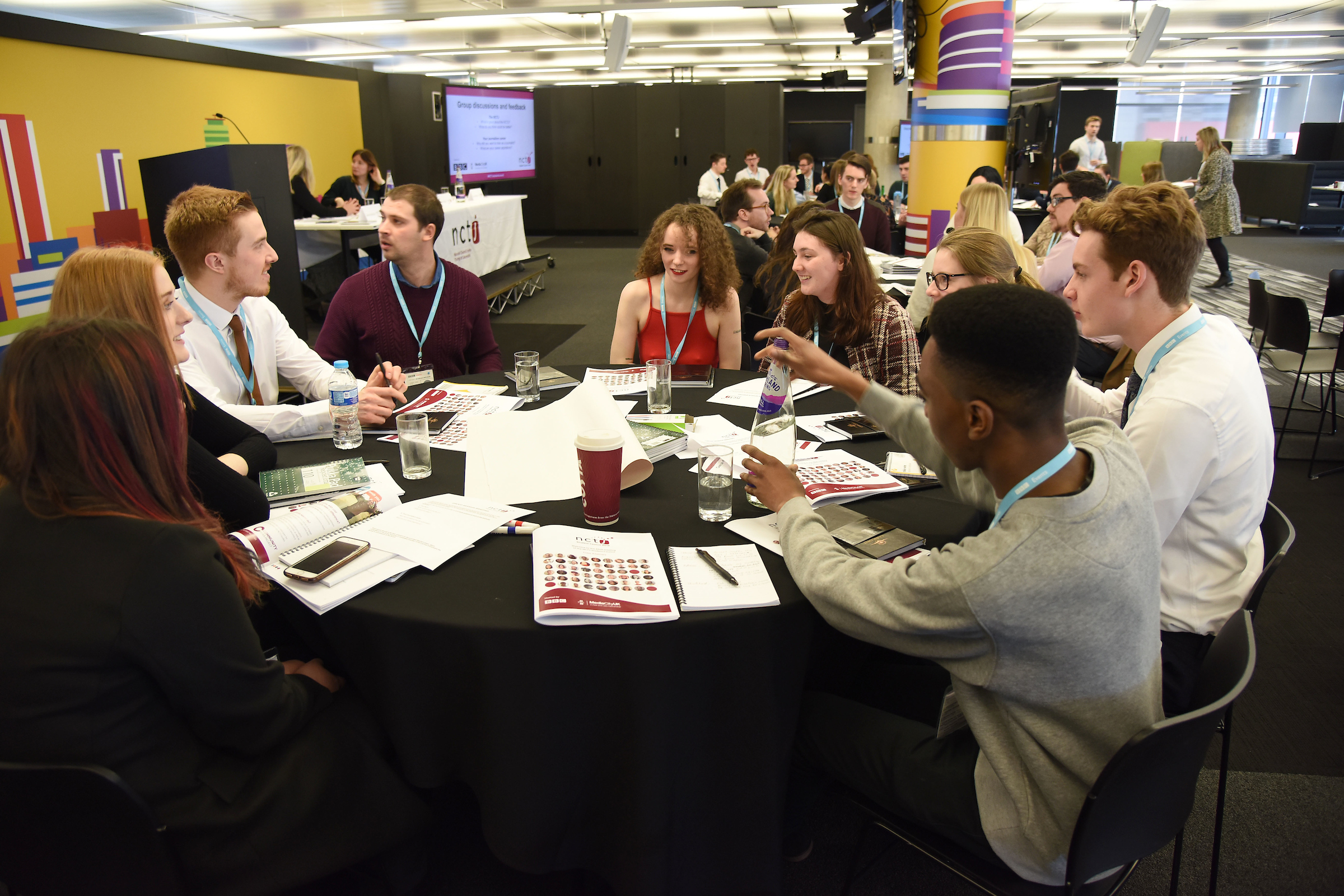Editors quizzed by NCTJ student representatives at 2019 Student Council
A panel of editors were quizzed about the changing landscape of journalism and work experience tips by students at the annual NCTJ Student Council event.
A panel of editors were quizzed about the changing landscape of journalism and work experience tips by students at the annual NCTJ Student Council event.
 Hosted by the BBC in MediaCity, Salford, on Friday, 8 February, the annual event provides a forum for students to tell the NCTJ what they think about the training scheme and to share information and ideas.
Hosted by the BBC in MediaCity, Salford, on Friday, 8 February, the annual event provides a forum for students to tell the NCTJ what they think about the training scheme and to share information and ideas.
More than 50 student representatives were in attendance, and had the opportunity to have their questions answered by the ‘meet the editors’ panel, which was chaired by Chas Watkin, executive editor at BBC Radio 4.
Chas was joined by David Higgerson, chief audience officer at Reach plc; Gillian Parkinson, editor of the Lancashire Post and Blackpool Gazette; Nazia Parveen, North of England correspondent for Guardian News and Media, and Lucy West, head of News for Granada Reports, ITV News.
When asked how the industry has changed for the better, and the worse, Gillian said: “We now listen more, whereas we used to ‘tell’ a lot. Now we don’t necessarily think we have all the answers.”
 David agreed, adding: “When I first worked on a daily we did things because we always did them that way, and didn’t think about the impact on the individual. Now, we do.
David agreed, adding: “When I first worked on a daily we did things because we always did them that way, and didn’t think about the impact on the individual. Now, we do.
“We think more about the individuals and the subject of the stories.”
Addressing what has changed for the worse, he said: “It’s far more acceptable for people to belittle what we do. We don’t have to move far in our brands to hear people shout ‘fake news’ at us.”
The panel also told students what they look for in work experience journalists, with Gillian suggesting they come up with lots of story ideas as it shows an attitude of someone who is willing to research and come up with ideas.
Chas added: “Listen to the outputs so you know what stories are being put out there.”
Tamara Siddiqui, senior reporter at The News, Portsmouth, gave an inspiring talk about progressing from the Diploma in Journalism to the National Qualification in Journalism (NQJ).
Tamara passed the NQJ exams at the end of 2018, and achieved the top results for three out of the four exams, winning three NCTJ awards.
She told students how she didn’t have the Diploma in Journalism after graduating from her degree course, which held her back from progressing at The News.
She said: “While my colleagues were progressing, I was held back because I didn’t have my NCTJ diploma.
“I was really lucky, The News paid for me to take the course at Highbury College because my media law knowledge wasn’t up to standard on the degree I had done.
“The shorthand was really valuable to me, you really need to retain that knowledge to get to the NQJ.”
Chief audience officer at Reach plc, David Higgerson, also spoke to students about the community reporter vacancies available through the Community News Project, which was formally launched last month.
 The students also had the opportunity to have their questions answered by senior NCTJ staff. The panel answered questions and listed to feedback from students on a variety of topics, including exam marking schemes, conditions for e-portfolio submissions and Cirrus, the online exams platform.
The students also had the opportunity to have their questions answered by senior NCTJ staff. The panel answered questions and listed to feedback from students on a variety of topics, including exam marking schemes, conditions for e-portfolio submissions and Cirrus, the online exams platform.
Students provided feedback on what they feel the NCTJ does well and where it could improve. They agreed that they liked how the NCTJ is recognised by the industry, and provides a gateway to jobs, and said they would like to be given access to more practice exam papers, and to be able to submit longer pieces in their e-portfolios.
Those who presented their feedback to the room were invited to attend a main board meeting in March.
When asked why they decided to train as journalists, the students said they wanted to have an impact on the world, tell people’s stories, hold power to account and be the voice of the people.
Thanking the students for their feedback, Joanne Butcher, chief executive of the NCTJ, said: “These reasons you want to be journalists is the reason I do this job.
“As professional, trained and qualified journalists you have an opportunity and responsibility to do all these things.”

